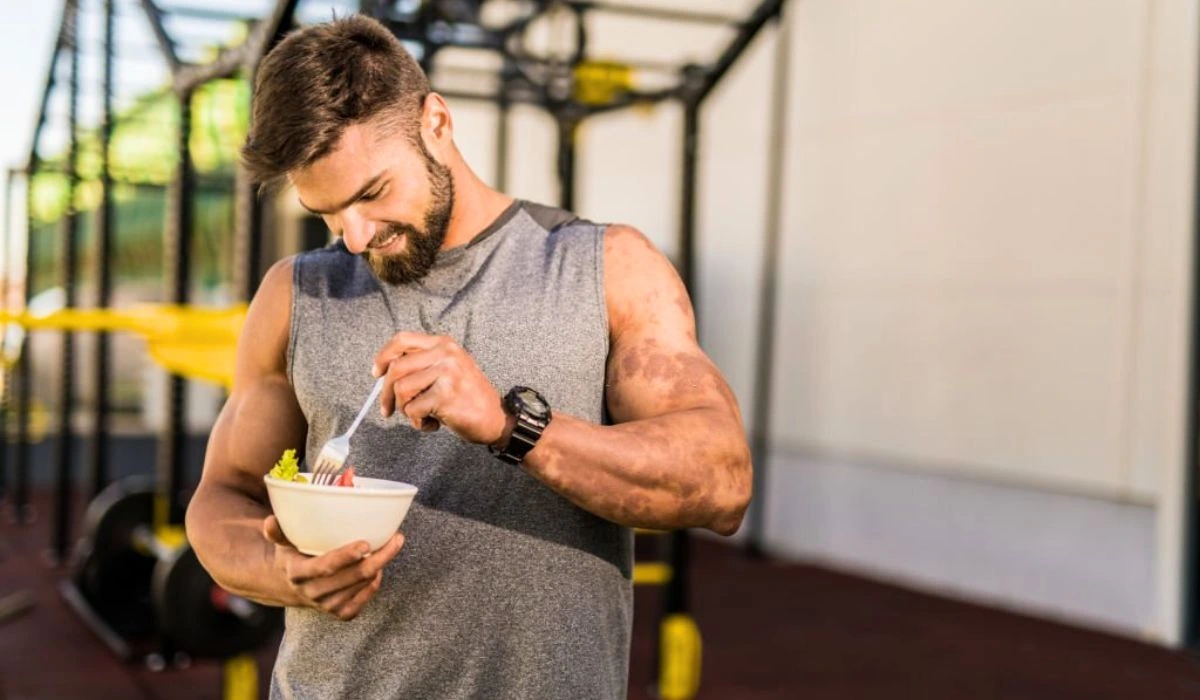Imagine going to battle without having the requisite energy to face your enemies. You will be so worn out that you may even faint before the first strike of the sword or pull of the trigger.
This is the same way athletes who are in constant use of their physical bodies need the right sources of energy to face the games with vigor.
Pre-Game Nutrition For Optimal Performance
According to health professionals and nutritionists, eating a meal two to four hours before a game is ideal because the body would have properly circulated and called up the nutrients in the meal.

These meals should be high in carbohydrates. This is because, in the long run, these carbohydrates are converted by means of digestion into simple sugar, which gives the body energy needed for the tasks ahead.
Also, the food may contain a moderate amount of protein and must be very low in fat in order to prevent digestive issues. Every other nutrient should be moderate in size.
Carbohydrates are the key piece of pre-game meals because they will be stored as energy and used during the game. They produce and store energy, build macromolecules, spare protein, and assist in lipid metabolism.
Since carbohydrates supply energy to all cells in the body, they would be the go-to foods for athletes, sportsmen, and women.
Nutritionists and food scientists have identified that cells prefer glucose as a source of energy versus other compounds like fatty acids.
Some cells, especially red blood cells, are only able to produce cellular energy from glucose. Glucose is also used in brain and motor development and also produces energy and function, unless under extreme starvation conditions.
Health professionals have said that more than 70 percent of the glucose entering the body from digestion is redistributed by the liver back into the blood for use by other tissues.
The sportsman’s cells would break these bonds and capture the energy to perform cellular respiration.
Cellular respiration is basically a controlled burning of glucose versus an uncontrolled burning.
A cell uses many chemical reactions in multiple enzymatic steps to slow the release of energy and more efficiently capture the energy held within the chemical bonds in glucose.
Also Check: Post-Workout Nutrition: What To Eat And When?
What To Do Before A Game?
Sportsmen are advised to eat a large portion of a meal, accompanied by plenty of fluids, especially water. Hydration for sportspeople is essential.
Good hydration would mean getting the right amount of water before, during, and after the game (but most especially before the game).
Water regulates your body temperature and lubricates your joints.
It also helps transport nutrients to give the athlete energy and keep them healthier. It has also been seen to provide clear vision and balance for athletes in track and field events and may require a lot of running and jumping.
Research has proven that if one is not hydrated, one’s body cannot perform at its highest level.
Without water before games, a sportsperson may feel tired, have cramps, feel dizzy, and experience other dire symptoms.
A simple way to check if an athlete or sportsperson is staying properly hydrated is to check his or her urine before the game. If your urine is usually colorless or light yellow, it means the athlete is properly hydrated and is good to face the game. Anything close to dark yellow or darker urine can be a sign of dehydration.
The beautiful thing is that there are no exact rules for drinking water during exercise. This is because everyone is different and has different body systems.
Factors to look at for individual athletes may be one’s sweat rate, the weather or heat conditions, and the humidity in one’s environment. Also, one’s clothing during exercise and how long or hard the exercise maybe should be considered.
Nutritionists have also advised that with less than an hour into a game, athletes must try to go light. For some meal options, pasta, rice, or other foods high in fiber and vegetables are advised.
After a few hours of exercise or games, sandwiches and burritos can be eaten. A much quicker option would be Greek yogurt, string cheese, and water.
The best is to focus on quick-digestive snacks. Fruits can be incredibly helpful in regards to hydration at this point, a few seconds into the game, to keep the energy up.
Read More: Youth Athlete Nutrition And Growth – Factors Of Sports Nutrition